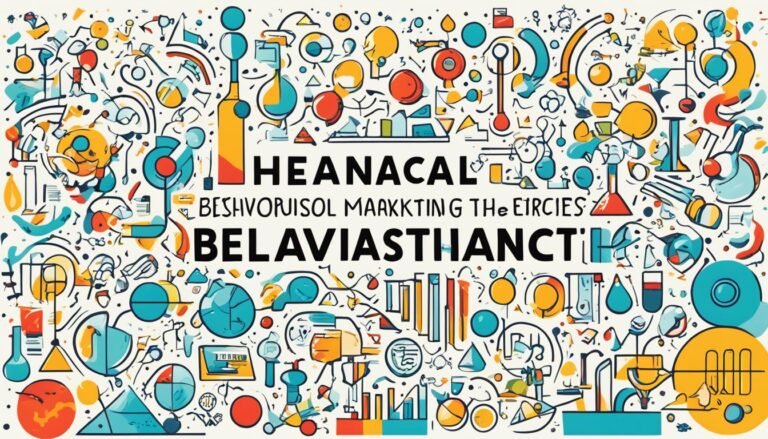Persuasion Techniques in Marketing
Imagine stepping into a bustling marketplace, where every stall vies for your attention like a symphony of colorful birds chirping in unison.
As a savvy consumer, you are constantly bombarded with marketing messages, each one vying for your loyalty and your wallet. In this fast-paced world of commerce, businesses have honed their skills in the art of persuasion, employing a myriad of techniques to captivate and convince.
But what are these techniques, and how can they shape your perception and ultimately influence your buying decisions? Join us on a journey through the realm of persuasion in marketing, where we will unravel the secrets behind these techniques and explore the power they hold in shaping our choices.
Key Takeaways
- The use of social proof is a powerful persuasion technique in marketing.
- Creating a sense of scarcity can effectively influence consumer behavior.
- Building trust through authority and expert endorsements is crucial in marketing.
- Storytelling is an art that can captivate and engage consumers, especially when it includes conflict, tension, and a satisfying resolution.
The Power of Social Proof
Discover the undeniable influence of social proof and learn how it can skyrocket your marketing success. The psychology behind social proof lies in the fundamental human need for validation and reassurance. As social beings, we look to others for cues on how to behave and make decisions. This innate tendency can be leveraged in marketing campaigns to great effect.
When consumers see that others have already purchased a product or service and are satisfied with their decision, they're more likely to follow suit. This is because social proof taps into the principle of consensus, where individuals assume that the actions of others reflect the correct course of action. By showcasing testimonials, reviews, and social media engagement, marketers can create a sense of trust and credibility around their brand.
Moreover, social proof can also be harnessed by utilizing influencers and celebrity endorsements. When consumers see someone they admire or trust endorsing a product, it reinforces the belief that the product is worth buying. This form of social proof not only increases the perceived value of the product but also creates a sense of aspiration and desirability.
Incorporating social proof into your marketing campaigns can lead to a significant boost in sales and brand perception. By leveraging the psychology behind social proof, you can tap into the power of influence and persuade potential customers to choose your brand over competitors.
Harnessing the Scarcity Principle
Utilize the scarcity principle to create a sense of urgency and exclusivity, driving customers to take immediate action and secure limited opportunities. Scarcity tactics are powerful tools in marketing that tap into people's fear of missing out (FOMO). By highlighting limited availability or time-bound offers, you can create a sense of urgency that compels customers to act quickly.
One effective way to implement scarcity tactics is by creating a scarcity buzz. This involves generating excitement and anticipation around your product or service through strategic messaging and promotion. For example, you can announce a limited edition release or a flash sale that lasts only for a few hours. By emphasizing the scarcity of these opportunities, you can stimulate demand and increase the likelihood of conversions.
Another effective tactic is to offer exclusive deals or rewards to a select group of customers. By making them feel special and privileged, you create a sense of exclusivity that motivates them to take immediate action. This can be achieved by offering early access to new products, VIP discounts, or limited edition merchandise.
Building Trust Through Authority
You want your customers to trust your brand, and one effective way to build that trust is through authority. Expert endorsements, credible testimonials, and influencer partnerships can all help establish your brand as a trusted source in your industry.
When customers see respected experts or influencers vouching for your products or services, they're more likely to view your brand as reliable and trustworthy.
Expert Endorsements
Through the power of expert endorsements, marketers can establish credibility and build trust with their target audience, ultimately influencing purchasing decisions. Expert recommendations hold significant influence over consumer behavior. Whether it's a renowned chef endorsing a cooking ingredient or a famous athlete promoting a sports brand, celebrity endorsements can have a powerful impact on consumer perception. People tend to trust the opinions and recommendations of experts in their respective fields. By associating their products or services with well-respected authorities, marketers can leverage the trust and credibility that these experts have already established. This can help alleviate any doubts or hesitations that consumers may have, leading to increased sales and brand loyalty. The table below showcases some successful expert endorsements and their impact on consumer behavior:
| Expert Endorsement | Product/Service |
|---|---|
| Oprah Winfrey | Weight loss program |
| LeBron James | Athletic shoes |
| Gordon Ramsay | Cookware |
| Bill Gates | Technology |
Credible Testimonials
Building trust and establishing authority are crucial elements in marketing. One effective way to achieve this is through the use of credible testimonials. Impactful testimonials and trustworthy customer reviews have the power to evoke strong emotions in your audience, helping to build an instant connection and credibility.
Here are three reasons why credible testimonials are so powerful:
- Authenticity: Credible testimonials provide real-life experiences from actual customers, showcasing the genuine value and benefits of your product or service. This authenticity resonates with your audience and builds trust.
- Social Proof: When potential customers see positive testimonials from others who've had a great experience with your brand, they're more likely to trust your business and make a purchase. It's human nature to seek validation from others.
- Relatability: Testimonials allow potential customers to see themselves in the shoes of satisfied customers. By sharing relatable stories, testimonials create an emotional connection that motivates action.
Incorporating impactful testimonials and trustworthy customer reviews into your marketing strategy can greatly enhance your brand's authority and help you build lasting relationships with your target audience.
Influencer Partnerships
By leveraging the influence of key individuals in your industry, you can establish trust and authority in your marketing efforts through strategic influencer partnerships. Influencer collaborations have become an essential component of modern marketing strategies.
These partnerships allow you to tap into the influencer's loyal following and leverage their credibility to promote your brand or product. When an influencer promotes your product or service, their audience perceives it as a personal recommendation, which builds trust and credibility.
This can lead to increased brand awareness, customer engagement, and ultimately, higher sales. To ensure the success of your influencer marketing strategies, it's crucial to choose influencers whose values align with your brand and target audience. Authenticity is key, and by partnering with influencers who genuinely believe in your product, you can create a powerful and persuasive marketing campaign.
The Art of Storytelling
Crafting captivating narratives is a powerful tool that marketers employ to engage and influence their target audience. Storytelling goes beyond simply conveying information; it creates a connection with the audience, evoking emotions and making the message more memorable.
Here are three techniques to help you evoke emotion in your audience:
- Character-driven narratives: By introducing relatable characters, you can draw the audience into the story and make them emotionally invested. Whether it's a struggling entrepreneur or a single parent trying to balance work and family, relatable characters create an emotional connection.
- Conflict and tension: Every good story needs conflict to keep the audience engaged. Introduce obstacles and challenges that the characters must overcome. By creating tension, you can evoke emotions like suspense, excitement, and empathy.
- The power of resolution: Just as conflict draws the audience in, resolution provides a sense of closure and satisfaction. Whether it's a happy ending or a bittersweet conclusion, a well-crafted resolution can leave a lasting emotional impact.
Using Persuasive Language and Tone
You want your marketing to have an impact, to make people take action. The language you choose plays a crucial role in influencing your audience. By using persuasive language, you can tap into their emotions and appeal to their desires, making them more likely to buy your product or service.
Additionally, the tone you adopt in your marketing materials can greatly affect how your message is received. By striking the right tone, whether it's authoritative, friendly, or urgent, you can further enhance your persuasive power.
Lastly, the words you select can make all the difference. Strong, powerful words have the ability to captivate and convince, so choose them wisely to maximize your marketing impact.
Language That Influences
In order to effectively influence and persuade your audience, it's crucial to master the art of using persuasive language and tone. By understanding the power of language, you can tap into psychological triggers and create a connection with your readers.
Here are three techniques to evoke emotion in your audience:
- Use vivid imagery: Paint a picture with words, allowing your readers to envision the benefits and outcomes of your product or service.
- Employ sensory language: Appeal to the senses by incorporating words that evoke taste, touch, smell, sight, and sound. This will make your message more tangible and relatable.
- Show empathy: Connect with your audience on an emotional level by demonstrating that you understand their challenges and desires. This creates trust and establishes a bond.
Tone for Persuasion
By harnessing the power of persuasive language and tone, you can effectively engage your audience and compel them to take action.
When it comes to tone for persuasion, emotional appeal is a crucial element. By using words that evoke strong emotions, you can create a connection with your audience and make them more receptive to your message. Whether it's excitement, fear, or nostalgia, tapping into the emotions of your audience can be a powerful tool in influencing their decision-making process.
Additionally, subliminal messaging can be incorporated into your tone to further enhance its persuasive impact. Subtle cues and suggestions can be embedded within your language, subtly guiding your audience towards the desired action without them even realizing it.
Powerful Word Choice
Harness the power of persuasive language and tone to captivate your audience and compel them to take action. When it comes to powerful word choice, the goal is to tap into the emotional triggers of your audience and subconsciously persuade them to act.
Here are three techniques to help you evoke emotion in your audience:
- Use vivid and descriptive language that paints a picture in their minds, making them feel like they're experiencing the benefits firsthand.
- Incorporate powerful action verbs that create a sense of urgency and motivate your audience to take immediate action.
- Appeal to their senses by using sensory words that engage their imagination and make your message more memorable.
Creating a Sense of Urgency
To effectively create a sense of urgency in your marketing strategy, tap into the power of psychological triggers that compel action.
In sales, creating a sense of urgency is crucial to prompt customers to act quickly and make a purchase. One effective tactic is using scarcity marketing tactics. By highlighting limited availability or time-limited offers, you can instill a sense of urgency in potential customers.
For instance, you can emphasize that there are only a few items left in stock, or that the special offer is only available for a limited time. This scarcity creates a fear of missing out (FOMO) in customers, compelling them to take immediate action.
Another way to create a sense of urgency is by using time-sensitive promotions, such as flash sales or limited-time discounts. By setting a deadline for the offer, you create a sense of urgency and encourage customers to make a purchase before time runs out.
Additionally, using phrases like 'Act now' or 'Limited quantities available' in your marketing messages can reinforce the sense of urgency and motivate customers to act promptly.
The Influence of Reciprocity
Prompted by the scarcity marketing tactics, another powerful persuasion technique in marketing is the influence of reciprocity. Reciprocity is the idea that when someone does something nice for us, we feel obligated to return the favor.
In the realm of customer service, this means going above and beyond to provide exceptional service, knowing that it will lead to a positive response from the customer. It's about treating customers with kindness and respect, and in turn, they'll be more likely to become loyal and repeat customers.
Reciprocity also plays a crucial role in negotiation techniques. By giving something of value to the other party, whether it's a concession or a small favor, you create a sense of indebtedness. This can be a powerful tool in influencing their decision-making process and can ultimately lead to a more favorable outcome for you.
Incorporating reciprocity in your marketing strategies can have a significant impact on your business. It helps establish a positive relationship with your customers and creates a sense of loyalty. By providing exceptional customer service and using reciprocity in negotiation techniques, you can build trust and credibility, ultimately leading to increased sales and customer satisfaction.
Emotionally Appealing Visuals
Incorporating emotionally appealing visuals into your marketing materials can captivate your audience and evoke a powerful response. Visual storytelling has the unique ability to communicate complex ideas and evoke emotions in a way that words alone cannot. When people see a striking image that resonates with them, it creates an instant emotional connection. This connection can be leveraged to influence their perceptions, attitudes, and behaviors.
Evoking emotions is a powerful tool in marketing because it allows you to create a memorable and impactful experience for your audience. By using emotionally appealing visuals, you can tap into their desires, fears, and aspirations. Whether it's a heartwarming image that elicits feelings of joy and nostalgia or a thought-provoking picture that sparks curiosity and intrigue, these visuals can leave a lasting impression.
Visual storytelling is particularly effective because it engages multiple senses simultaneously. It allows you to convey a message in a way that's both engaging and memorable. By using a combination of colors, shapes, and composition, you can create a visual narrative that speaks directly to your audience's emotions. This can help you build a strong brand identity, foster trust, and establish a deep connection with your customers.
Leveraging the Bandwagon Effect
You want your marketing strategy to be effective, right?
Well, leveraging the bandwagon effect can be a game-changer for your brand. By showcasing social proof and tapping into the power of herd mentality, you can convince potential customers that everyone else is jumping on board with your product or service, creating a sense of FOMO (fear of missing out) and driving them to join the crowd.
Don't miss out on the opportunity to leverage the bandwagon effect and boost your brand's success.
Social Proof
By tapping into the power of social proof, marketers can effectively sway the opinions and behaviors of their target audience, creating a compelling bandwagon effect that draws others in.
Social validation plays a key role in this process, as individuals tend to look to others for guidance and confirmation. When consumers see that a product or service is endorsed by people they admire or trust, it triggers a sense of validation, making them more likely to follow suit.
Social influence also comes into play, as individuals are influenced by the actions and choices of others. This can be seen in the use of testimonials and user-generated content, which highlight the positive experiences of real people.
Herd Mentality
Harness the power of the herd mentality to drive your marketing efforts and create a powerful sense of belonging and popularity among your target audience. Groupthink psychology and mob mentality play a significant role in influencing consumer behavior. By leveraging the bandwagon effect, you can tap into the innate desire of individuals to conform and be part of a larger group.
Check out this compelling table that highlights the impact of herd mentality:
| Traditional Marketing | Herd Mentality Marketing | |
|---|---|---|
| Influence on Decision | Moderate | High |
| Sense of Belonging | Low | High |
| Perceived Popularity | Average | Exceptional |
| Word-of-mouth Promotion | Limited | Extensive |
| Conversion Rate | Average | High |
The Impact of Personalization
Personalization has revolutionized the field of marketing, captivating audiences and driving sales through tailored experiences. The impact of personalization goes beyond just offering personalized recommendations or customized marketing strategies. It taps into the emotions and desires of consumers, creating a powerful connection that drives them to engage and make purchase decisions.
Here are three ways in which personalization impacts marketing:
- Emotional resonance: Personalization allows brands to connect with their audience on a deeper level by understanding their preferences, needs, and aspirations. By delivering content and offers that resonate with consumers' emotions, brands can evoke feelings of joy, excitement, or even nostalgia, creating a positive association with their products or services.
- Enhanced customer experience: Personalized marketing strategies not only make customers feel valued, but they also enhance their overall experience. By tailoring messages and offers to individual preferences, brands can deliver relevant and timely content that meets customers' specific needs. This creates a seamless and satisfying customer journey, increasing loyalty and repeat purchases.
- Increased conversion rates: Personalization has a direct impact on sales. When customers receive personalized recommendations or targeted offers, they're more likely to convert and make a purchase. By leveraging data and analytics, brands can optimize their marketing efforts, delivering the right message to the right person at the right time, ultimately driving higher conversion rates and revenue.
Conclusion
In conclusion, by implementing the various persuasion techniques in marketing, you have the power to captivate your audience and drive them towards action.
Through social proof, scarcity, authority, storytelling, persuasive language, reciprocity, emotionally appealing visuals, and the bandwagon effect, you can create a compelling and personalized experience for your customers.
So, why wait? Start harnessing these techniques today and watch as your marketing efforts yield remarkable results, coincidentally aligning with your goals and exceeding expectations.







